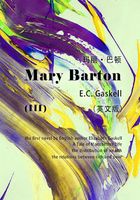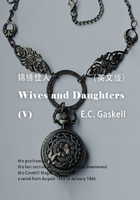THE APPROACH TO AL-MU'TASIM
Philip Guedalla writes that the novel The Approach to Al-Mu'tasim by the Bombay lawyer Mir Bahadur Ali "is a rather uncomfortable combination of those allegorical poems of Islam which rarely fail to interest their translator and of those detective novels which inevitably surpass John H. Watson and refine the horror of human life found in the most irreproachable boarding houses of Brighton." Previously, Mr. Cecil Roberts had spoken harshly of Bahadur's book, condemning "the double, improbable, tutelage of Wilkie Collins and of Farid ud-din Attar, the illustrious twelfth-century Persian": a tranquil enough observation, which Guedalla repeats without notable emendation but in a choleric tone of voice. Essentially, both critics are in agreement: both indicate the detective story mechanism of the novel and its mystic undercurrent. This hybridization may cause us to imagine some likeness with Chesterton; we will soon see that there is no such thing.
The editio princeps of The Approach to Al-Mu'tasim appeared in Bombay toward the end of 1932. The paper used was almost the quality of newsprint; the cover proclaimed to the buyer that the book was the first detective novel written by a native of Bombay City. Within a few months the public bought up four printings of a thousand copies each. The Bombay Quarterly Review, the Bombay Gazette, the Calcutta Review, the Hindustan Review (of Allahabad), and the Calcutta Englishman distributed their eulogies. Thereupon Bahadur issued an illustrated edition of the book, which he now titled The Conversation with the Man Called Al-Mu'tasim and handsomely subtitled A Game with Shifting Mirrors. This is the edition which has just been reproduced and issued in London by Victor Gollancz, with a prologue by Dorothy L. Sayers, and the omission-perhaps merciful-of the illustrations. I have it in front of me. The first edition, which I suspect is far superior, I have never succeeded in finding. I am authorized in this last judgment by an appendix which summarizes the fundamental difference between the primitive version of 1932 and the 1934 edition. Before examining the book-and arguing its merits-it would be well for me to indicate rapidly the general course of the work.
Its visible protagonist-we never learn his name-is a law student in Bombay. He disbelieves, blasphemously so, in the Islamic faith of his fathers. But at nightfall on the tenth night of the lunar month of Muharram, he finds himself in the center of a civil tumult between Moslems and Hindus. The night is filled with drums and invocations: the great paper canopies of the Moslem procession force their way among the adverse multitude. A brick flung by a Hindu comes flying from a rooftop; someone sinks a dagger into another's belly; someone-Moslem? Hindu?-is killed and is stamped underfoot Three thousand men battle: cane against revolver, obscenity against imprecation, God the Indivisible against the Gods. Aghast, the free-thinking student joins the fray. With desperate hands he kills (or thinks he kills) a Hindu. The Sirkar police-mounted, deafening-hooved, half asleep-intervene with their impartial lashes. Almost beneath the hooves of the horses, the student takes flight; he makes for the farthest outskirts of town. He crosses two sets of railroad tracks, or the same tracks twice. He scales the wall of an entangled garden, at the back of which rises a circular tower. "A lean and evil mob of mooncolored hounds" breaks out from behind the black rosebushes. Fiercely beset, he takes refuge in the tower. He climbs an iron ladder-some of the rungs are missing-and, once on the roof, where there is a blackish well in the center, encounters a squalid man squatting by the light of the moon and urinating noisily. This man confides in him that his profession is to rob gold teeth from the white-shrouded cadavers which the Parsees leave in this tower. He talks of other equally vile matters and mentions that fourteen nights have passed since he last purified himself with buffalo dung. He speaks with manifest hatred of certain horse thieves in Guzerat, "eaters of dogs and lizards, men as unclean as the two of us." The sky begins to grow light: the air is filled with the low flight of fat vultures. Exhausted, the student falls asleep. When he awakes, the sun is high in the sky and the robber has disappeared. Also missing are a couple of Trichinopoly cigars and some silver rupees. In the face of the menaces foreshadowed by the previous night, the student resolves to lose himself in the depths of India. He meditates on how he has shown himself capable of killing an idolater, but not of knowing for certain whether a Moslem is more justified in his beliefs than a Hindu. He can not get the name of Guzerat out of his mind, nor that of a certain malka-sansi (a woman of the robber caste) of Palanpur, the preferred target of curses and object of hatred for the de-spoiler of cadavers. He reasons that the rancor of a man so minutely vile is worthy of special eulogy. He resolves-with little hope-to look for the malka-sansi. After brief prayer, he sets forth on the long voyage with assured languor. Thus concludes the second chapter of the work.
It is impossible to trace the vicissitudes of the nineteen remaining chapters. There is a dizzy pullulation of dramatis personae, not to speak of a biography which seems to exhaust the movements of the human spirit (ranging from infamy to mathematical speculation) or of a peregrination which encompasses the vast geography of Hindustan. The story which begins in Bombay continues in the lowlands of Palanpur, lingers an afternoon and a night at the stone gates of Bikaner, narrates the death of a blind astrologer in a Benares sewer, conspires in the multiform palace of Katmandu, prays and fornicates-amid the pestilential stench of Calcutta-in the Machua Bazaar, watches the days be born in the sea from an office in Madras, watches the afternoons die in the sea from a balcony in the state of Travancore, hestitates and kills at Indapur and closes its orbit of leagues and years in Bombay itself, a few paces away from the garden of the mooncolored hounds.
The plot is as follows: a man, the incredulous and fugitive student whom we already know, falls among people of the vilest class and adjusts himself to them, in a kind of contest of infamy. All at once-with the miraculous consternation of Robinson Crusoe faced with the human footprint in the sand-he perceives some mitigation in this infamy: a tenderness, an exaltation, a silence in one of the abhorrent men. "It was as if a more complex interlocutor had joined the dialogue." He knows that the vile man conversing with him is incapable of this momentaneous decorum; from this fact he concludes that the other, for the moment, is the reflection of a friend, or of the friend of a friend. Rethinking the problem he arrives at a mysterious conviction: some place in the world there is a man from whom this clarity emanates; some place in the world there is a man who is this clarity. The student resolves to dedicate his life to finding him.
The general argument is thus glimpsed: the insatiable search for a soul through the subtle reflections which this soul has left in others; in the beginning, the faint trace of a smile or of a word; in the end, diverse and increasing splendors of reason, of the imagination and of good. In the measure that the men questioned have known Al-Mu'tasim more intimately, in that measure is their divine portion the greater-though it is always clear that they are mere mirrors. Mathematical technicality is applicable: Bahadur's burdened novel is an ascending progression, whose final end is the presentiment of a "man called Al-Mu'tasim." The immediate antecedent of Al-Mu'tasim is a supremely happy and courteous Persian bookseller. The predecessor of this bookseller is a saint….
After many years the student arrives at a gallery "at the rear of which there is a door hung with a cheap and copiously beaded mat curtain; from behind it there emanates a great radiance." The student claps his hands once, twice, and asks for Al-Mu'tasim. A man's voice-the incredible voice of Al-Mu'tasim-urges him to come in. The student draws back the curtain and steps forward. The novel ends.
Unless I am deceived, the successful execution of such an argument imposes two obligations upon the writer: one, the various invention of prophetic traits; the other, the obligation of seeing to it that the hero prefigured by these traits be no mere convention or phantom. Bahadur satisfies the former; I do not know to what degree he satisfies the second. In other words: the extraordinary and unseen Al-Mu'tasim should give us the impression of a real character, not that of a jumble of insipid superlatives. In the 1932 version, the supernatural notes are scarce: "the man named Al-Mu'tasim" is to some degree a symbol, but he does not lack idiosyncratic personal features. Unfortunately, this literary good conduct did not last long. In the 1934 version-which I have at hand-the novel sinks into allegory: Al-Mu'tasim is the emblem of God, and the punctual itinerary of the hero is in some manner the forward progress of the soul in its mystic ascent. Grievous details abound: a Negro Jew from Cochin speaking of Al-Mu'tasim says that his skin is dark; a Christian describes him standing atop a tower with his arms outspread; a Red lama remembers him seated "like that image of yak lard which I modeled and adored in the monastery at Tashilhumpo." These declarations are all meant to insinuate a unitary God who accommodates Himself to human diversities. To my mind, the idea is not very stimulating. I will not say the same of this other one: of the conjecture that the Almighty is also in search of Someone, and that Someone in search of some superior Someone (or merely indispensable or equal Someone), and thus on to the end-or better, the endlessness-of Time, or on and on in some cyclical form. Al-Mu'tasim (the name is the same as that of the eighth Abbasside, who was victor in eight battles, engendered eight male and eight female children, left behind eight thousand slaves and reigned during eight years, eight moons, and eight days) etymologically means The Seeker of Shelter. In the 1932 version, the fact that the object of the pilgrimage should be in turn a pilgrim opportunely justified the difficulty of finding him. In the 1934 version, it gives grounds to the extravagant theology I have mentioned. Mir Bahadur Oli is, as we have seen, incapable of evading the most vulgar of art's temptations: that of being a genius.
After rereading, I am apprehensive lest I have not sufficiently underlined the book's virtues. It contains some very civilized expressions: for example, a certain argument in the nineteenth chapter in which one feels a presentiment that one of the antagonists is a friend of Al-Mu'tasim when he will not refute the sophisms of his opponent "so as not to be right in a triumphal fashion."
* * * * * * * * * *
That a present-day book should derive from an ancient one is clearly honorable: especially since no one (as Johnson says) likes to be indebted to his contemporaries. The repeated, but insignificant, contacts of Joyce's Ulysses with the Homeric Odyssey continue to enjoy-I shall never know why-the harebrained admiration of the critics. The coincidence in Bahadur's novel with Farid ud-din Attar's venerated Colloquy of the Birds are rewarded with the no less mysterious applause of London, and even of Allahabad and Calcutta. Other derivations for Bahadur's novel are not wanting. One inquisitor has enumerated certain analogies in the novel's first scene with elements from Kipling's story On the City Wall. Bahadur has admitted the connection, but has alleged that it would be most abnormal if two paintings depicting the tenth night of Muharram did not coincide in some way….
Eliot, with greater justice, recalls the seventy cantos of the incomplete allegory The Fa?rie Queen, where the heroine, Gloriana, does not appear a single time-as previously pointed out in a censure by Richard William Church (Spenser, 1879). With all humility, I wish to mention a distant, and possible, predecessor: the Jerusalem cabalist Isaac Luria, who in the sixteenth century proclaimed that the soul of an ancestor or that of a master might enter the soul of an unfortunate to comfort or instruct him. lbbür is the name for this type of metempsychosis.[1]
1935
-Translated by ANTHONY KERRIGAN
notes
[1] I have referred, in the course of this note, to the Mantiq ut-Tair (Colloquy of the Birds) by the Persian mystic Farid ud-din Abu Talib Mehammed ibn-Ibrahim Attar, who was assassinated by the soldiers of Tului, Genghis Khan's son, when Nishapur was sacked. Perhaps it will not prove idle to summarize the poem. The faraway king of the birds, the Simurg, drops an exquisite feather in the middle of China; weary of their ancient anarchy, the birds determine to find it. They know that their king's name means "Thirty Birds" they know that his royal palace stands on the Kaf, the circular mountain which surrounds the earth. They undertake the almost infinite adventure. They fly over seven valleys, or seven seas; the next-to-the-last one is called Vertigo; the last, Annihilation. Many of the pilgrims desert; others perish. Thirty of them, purified by their labors, set foot upon the Mountain of the Simurg. At last they contemplate it: they perceive that they are the Simurg, and that the Simurg is each one of them and all of them. (The Enneads of Plotinus, too, declare-V, 8, 4-a paradisiacal extension of the principle of identity: "Everything in the intelligible heaven is everywhere. Anything is all things. The sun is all the stars, and each star is all stars and the sun.") The Mantiq ut-Tair has been translated into French by Garcin de Tassy, into English by Edward Fitzgerald. For purposes of this note I have consulted the tenth volume of Burton's The Thousand and One Nights and the monograph titled The Persian Mystics: Attar (1932) by Margaret Smith.
The points of contact between this poem and Mir Bahadur's novel are not over-numerous. In Chapter 20, certain words attributed by a Persian bookseller to Al-Mu'tasim are, perhaps, a magnification of certain others spoken by the hero. This ambiguous analogy and others like it may merely signify the identification of the searcher with the sought; they also might mean that the latter influences the former. Another chapter insinuates that Al-Mu'tasim is the "Hindu" whom the student believes he has killed.















